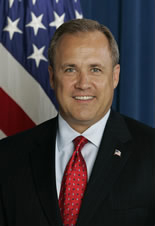A Quote by Brian Deese
One truism of federal budgeting is that growing deficits force difficult spending decisions, and when they do, programs to help the poor are usually first on the chopping block.
Related Quotes
In different countries the basis of resistance takes different forms, but it comes chiefly from the conservative groups. Hence it becomes increasingly difficult to go on spending in the presence of persisting deficits and rising debt. Some form of spending must be found that will command the support of the conservative groups. Political leaders, embarrassed by their subsidies to the poor, soon learned that one of the easiest ways to spend money is on military establishments and armaments, because it commands the support of the groups most opposed to spending.
When I started to get involved in the crime issue, people said, "it's a local issue." I said, "No, there are lots of ways the federal government can help." And the best way the federal government can help, and did in the Crime Bill, is to find programs that work around the country and help them spread.
The assumption that spending more of the taxpayer's money will make things better has survived all kinds of evidence that it has made things worse. The black family- which survived slavery, discrimination, poverty, wars and depressions- began to come apart as the federal government moved in with its well-financed programs to “help.”

































